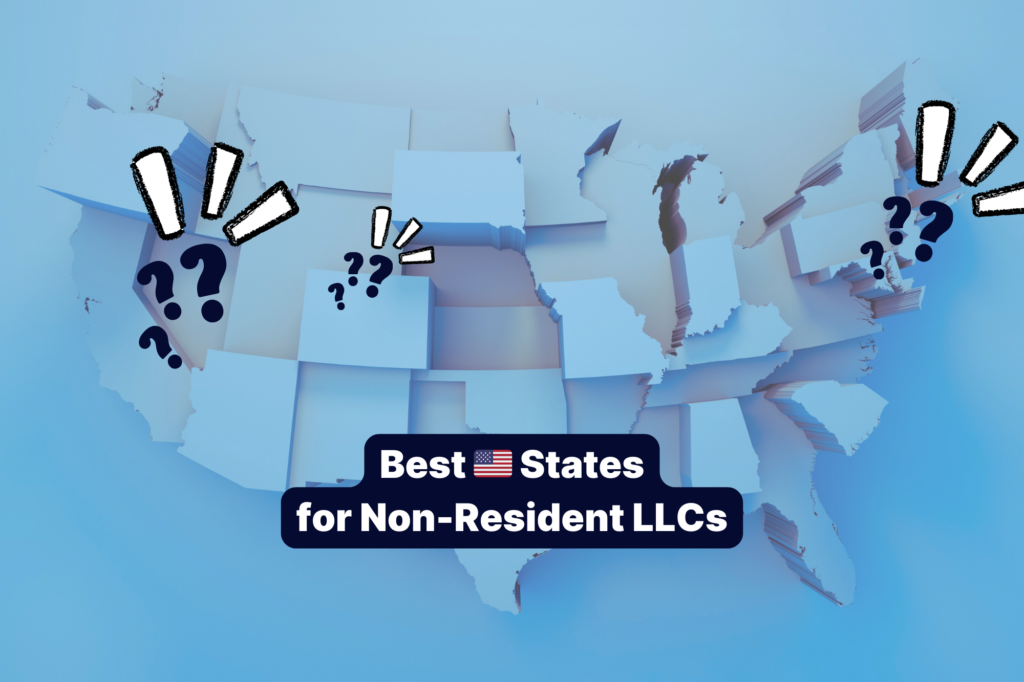Why Ecommerce Founders Need to Understand Resale Certificates
Running a US-based ecommerce company—whether you’re dropshipping from Dubai or wholesaling from Ho Chi Minh—means two unavoidable things:
- You’ll be buying inventory from US suppliers.
- You’ll be collecting and remitting US sales tax to multiple states as you scale.
A resale certificate lets you buy those goods tax-free upfront, protecting your margins and avoiding double taxation. Get it wrong, however, and you could be billed for uncollected sales tax plus interest and penalties.
Sales-Tax Basics: Permit, Nexus, and Resale Certificate Explained
• Sales-tax permit (sometimes called a seller’s permit): your license to collect and remit sales tax in a specific state.
• Sales-tax nexus: the connection—physical or economic—that obligates you to hold a permit and collect tax in that state. (See our in-depth guide “Sales Tax Nexus Simplified” for thresholds.)
• Resale certificate: a document you present to suppliers so they don’t charge you sales tax on inventory you plan to resell.
Remember: A resale certificate doesn’t replace the need to collect tax from your customers. It only shifts the point of taxation from when you buy inventory to when you sell it.
How to Apply for a Resale Certificate (State-by-State Overview)
Each state issues its own form, numbering system, and renewal rules. Here’s a rapid walkthrough of the most popular ecommerce states:
• Delaware – No sales tax, therefore no resale certificate required.
• Florida – Apply online via the Department of Revenue e-Services portal; certificate auto-renews every 5 years.
• California – BOE-230 form; no fee; keep on file, does not expire if used at least once per year.
• Texas – Form 01-339; no expiration but “good-faith” documentation required.
• New York – Form ST-120; valid three years.
Tip for non-US residents: Some states ask for an SSN. If you don’t have one, use your EIN—and let Clemta secure that EIN in 48 hours.
The Streamlined Sales Tax (SST) Program: Fast-Track Registration for Non-Residents
Twenty-four states have agreed to standardize definitions, filings, and exemption certificates under the SST Agreement. Key perks for ecommerce founders:
- One application = resale (exemption) certificates recognized in 24 states.
- Free sales-tax calculation and filing software offered by Certified Service Providers (CSPs).
- Protection from audit liability in member states when you use a CSP.
You qualify if you:
• Have no physical presence in an SST state, and
• Collect < $100,000 in that state (varies; confirm thresholds).
Compliance Checklist: Using, Renewing, and Storing Your Certificates
✅ Issue the certificate before or at the time you place your first non-taxed order with a supplier.
✅ Include your legal entity name, EIN, state permit number, and signature.
✅ Renew or update whenever your business address, ownership, or nexus status changes.
✅ Store copies (paper or digital) for at least four years; auditors will ask.
✅ Track which states require periodic renewals (e.g., Florida) versus those with no expiration (e.g., Texas).
Common Mistakes (and Penalties) to Avoid
- Using another company’s certificate—penalty: unpaid tax + 50% fraud surcharge.
- Claiming resale on office supplies and fixed assets; resale certificates apply only to inventory.
- Forgetting to collect sales tax at checkout: states can go back seven years.
- Assuming your Amazon FBA stock creates no nexus—see our post “Requirements for an Amazon Seller Account” for detail.
How Clemta Simplifies Multi-State Sales-Tax Compliance for Global Sellers
• Company formation in tax-friendly states such as Delaware and Wyoming.
• Fast EIN/ITIN procurement, even if you don’t have an SSN.
• Integrated bookkeeping that flags resale-eligible purchases automatically.
• Sales-tax registration, SST enrollment, and monthly filings—all inside one dashboard.
Ready to bulletproof your sales-tax process? Book your free strategy call today.
FAQ on Resale Certificates and SST
Q1. Can I use one resale certificate nationwide?
A1. Only if you’re registered through the SST and selling exclusively in its 24 member states. Otherwise, you need separate certificates.
Q2. Do digital products qualify?
A2. In most states, no. Resale certificates typically cover tangible personal property.
Q3. I’m a non-US resident dropshipper. Which address goes on the certificate?
A3. Use your US entity’s registered office (provided by Clemta) and include your EIN.
Q4. What happens if I lose a certificate?
A4. Request a duplicate from the state or vendor immediately; lack of documentation = tax liability.







